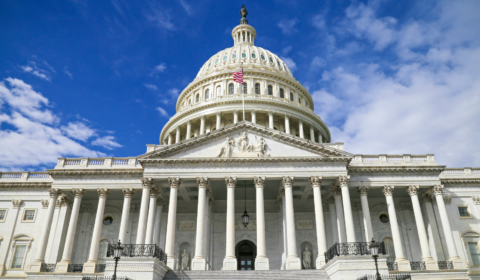Hydrofluorocarbons are supposed to be dying out under the terms of a global treaty. The compounds represent a major threat to our climate, but remain in hot demand for shady businesses unwilling to change.
No, this isn’t leftist propaganda. Greenhouse gas emissions are technically being sold on the black market. But how and why?
The Environmental Protection Agency is scrambling to wean the planet off gases called hydrofluorocarbons (HFCs) before they potentially hypercharge global warming.
These man-made compounds are primarily used as coolants, ironically, in household appliances like fridges, freezers, and vehicle air conditioners. Your local ice rink and supermarket probably love the stuff.
Where do hydrofluorocarbons come from?
Springing to life in the 1990s as the successor to chlorofluorocarbons (CFCs), after the refrigerants were internationally banned for depleting the planet’s ozone layer, HFCs have proven a stubborn menace to another existential crisis, climate change.
Notorious for trapping the sun’s heat, certain iterations of HFC reportedly have warming potential some 14,800 times higher than carbon dioxide over the span of a century. That’s worrying, considering ageing appliances and pipe networks leak a lot.
Shortly after these revelations first came to light, the EPA scorned HFCs as ‘super greenhouse gases’ and widescale phase-down plans were called into effect in 2016. Involving over 150 nations, this landmark bill became known as the Kigali Amendment.
Having been labelled a ‘controlled substance’ for around eight years now, the EPA has been given the authority to limit or increase the amount of HFCs a supplier or company is allowed to deal in – basically, the ‘Your father says no, and that’s final’ type of scenario.
Companies deemed to be doing essential work are given some leeway, including inhaler manufacturers, semiconductor producers, and the Ministry of Defence, but no new applications for HFCs are being considered.
The supply is finite and diminishing every year until 2026, by which point production and consumption will hopefully reach just 15% of historic baseline levels.
With increasingly less corporate recipients in the equation, however, nefarious traders and smugglers are rushing in to fill the vacuum and rake in the profits – and consumer demand is still very much alive.




















